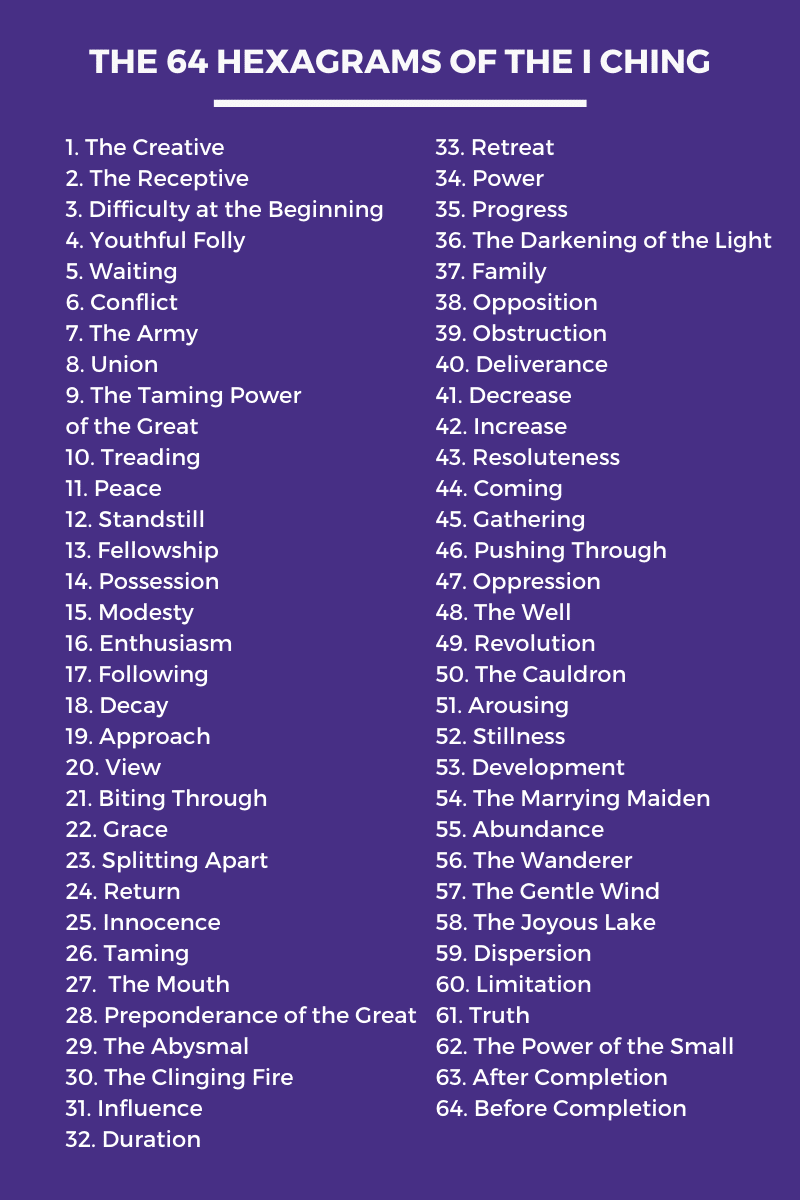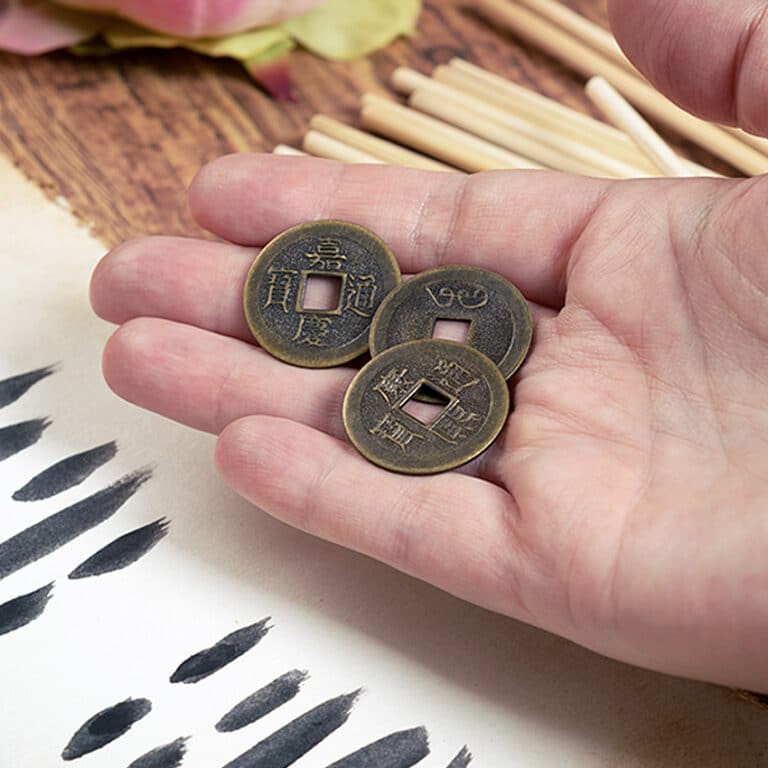The I Ching is a book of wisdom based on ancient Chinese scholars’ philosophical writings and musings, namely Confucius. It is the oldest of all the classical books on divination and wisdom, written around 1000 BC.
It is not an easy read, nor could this form of divination be a simple pick for a parlor game – the I Ching is a masterwork of philosophy that requires patience and a mind for profound interpretation.
And while it could be considered a metaphysical “game” to be played in the way one might throw a Tarot card and divine a fortune, the answers and guidance provided by the I Ching are best left to the seasoned reader for interpretation.
Today, we review your most burning questions about the I Ching to better understand this ancient book of wisdom!
Can the I Ching Predict the Future?
If one asks a question that pertains to the future, then yes, the I Ching can respond to that question with truth and wisdom.
However, the I Ching is not a “yes” or “no” form of mystical divination. In fact, you will never get a straightforward answer from the I Ching – it is meant to utilize your thought process, your intelligence.
As for predicting the future, it can give profound advice for how one should proceed in life, and depending on the hexagram you throw and the lines that accompany that hexagram, with patience and effort, one can behold a wonder of information that is strictly and specifically related to the question.
How is the I Ching Used?
When we inquire of the oracle that is the I Ching, we toss coins to get a result. I use pennies, but Chinese coins can be used as well.
The coins have two sides and depending on how they fall, they display either heads or tails.
Heads have a numerical value, as do tails, and after we toss the coins six times, we build what is called a hexagram based on the numerical outcome of the coin toss. It may sound complicated, but it’s quite easy to catch on to once you’re involved.
When we finish tossing the coins, we add up the lines and numbers, and we get “our” personal hexagram — the hexagram that holds the information we need and the answers we are looking for. There are 64 hexagrams within the I Ching, and it is through the tossing of the coins that we come up with the correct guidance for our particular situation.
If we are inquiring about love, we concentrate on our question while we are tossing the coins. The coins are picking up on our energy, reflecting us, taking on our concerns; they are building an answer for us.
How Does the I Ching Relate to Divination?
Anything can be considered divination if a seeker wishes to know what is unknown and uses a physical method to get their answer.
The I Ching is a book of wisdom; one could potentially flip through the pages and place their finger on a page and get an answer – that is divination. The I Ching has so much to offer if one has the curiosity to find out more. If we ask, we receive – that is divination. We “divine” an answer by asking it of the oracle, and the “oracle” is the I Ching itself, also known as The Book of Changes.
In the same way, one thinks of a “divining rod” as an object that can lead us to water, so it goes with the I Ching. Within its pages are words of divine wisdom. We use the hexagrams for specificity and individual guidance.
Does the I Ching Relate to Astrology?
It does not relate to astrology. However, it can, if astrology is mentioned in the original inquiry.
It is not based on the Chinese Zodiac, nor is it based on any astrological predictor. However, it is based on common sense and real-life matters of the heart.
The I Ching will not talk about the Year of the Rat, nor will it mention historical dates in time, but it most definitely can help understand the Chinese Zodiac. If you were to find out your Chinese Zodiac animal, you could then bring that knowledge to an I Ching reading, where the Book of Changes would further on that knowledge.
Read this article next: 5 Underrated & Powerful Divination Systems
What Are the Hexagrams of the I Ching?
There are 64 hexagrams in the I Ching, which also have within them changing lines that give the reader a second set of hexagram meanings to interpret.
The I Ching’s hexagrams cover the gamut of human experiences, and each hexagram can be found in the book, written with flourished prose and insight. As mentioned, this is not a walk in the park – this is a study, a spiritual scripture that demands devout practice and skillful intuition.
Each Hexagram consists of two parts, an upper trigram and a lower trigram. The sides on a coin determine which hexagram is ours to discover, and that determination happens when we toss the coins six times.
Each hexagram has a message that is unique to each question asked of the I Ching. And while many of the hexagrams’ names seem archaic and outdated, the wisdom inside is rich and relevant – that is, the miracle of ancient wisdom is always relevant.

Try the I Ching
We have learned that the I Ching is a book of wisdom based on the ancient-yet-relevant teachings of Confucius, that is accessed through the tossing of coins, which give us a count of lines that make up what is known as a hexagram.
When we arrive at our given hexagram, we look it up in the book, and there we find our advice-answer-guidance. We’ve learned that the guidance is intense, specific, and needs analyzation – that is what interpretation is all about!
The I Ching is not a quick fix for divining an answer, but rather an investigative journey into the issues that concern us, with a common-sense approach to fixing them. Asking the I Ching a question is never a bad idea, but be prepared to receive an honest assessment and a workable outcome.
If you are looking for knowledge, the I Ching is the most comprehensive divination form.
